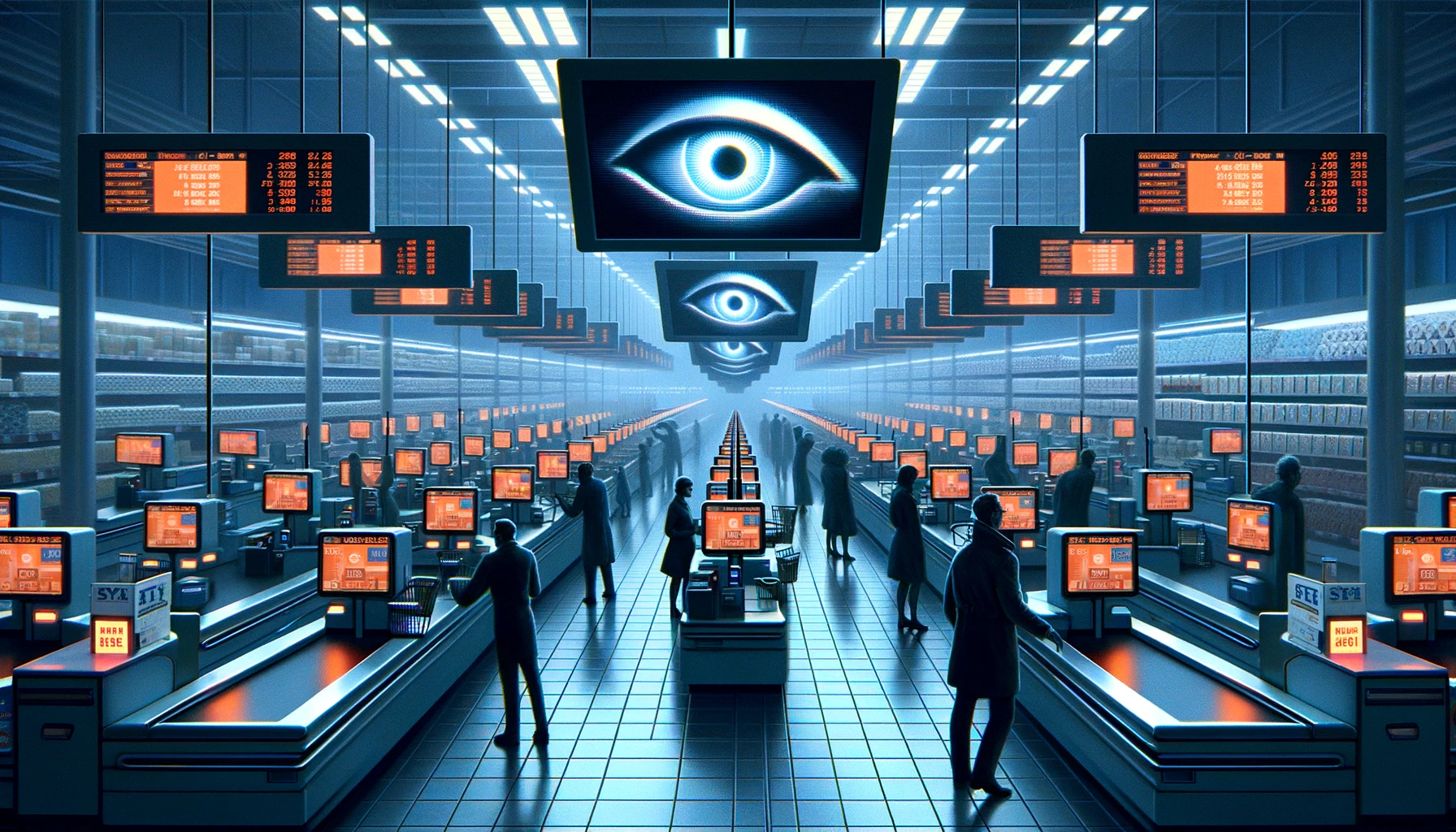The rise of self-scanning checkouts in supermarkets has a side effect: one in three loyal customers turns into petty thieves. According to scientists at the University of Leicester, this is because shops with self-scanning checkouts give customers ready-made excuses to take away merchandise without paying, and provoke behaviour that allows the self-scanning customers to ‘neutralise’ their guilt. A forgotten scan here, an accusing finger pointing at a faltering barcode there – these are small acts that add up to a dance of theft, while customers can delude themselves that it is ‘pay in kind’ for having to scan far too expensive groceries themselves.
The irony? Supermarkets keep installing self-scanning checkouts. Why? Because it pays off. In an industry where staff costs are skyrocketing, every saving is a step towards profit maximisation. And what turns out? The kleptomaniac customer is paradoxically cheaper than a cashier. So shoplifting, once a criminal and morally reprehensible act, becomes a profitable part of the revenue model.
To reduce theft somewhat, customers are automatically punished for ‘bad’ shopping behaviour. It is reminiscent of a penal colony: anyone who, according to the unfathomable algorithm, walks ‘too slowly’ through the aisles or stays somewhere ‘too long’ is met at the self-scanning checkout, forced to undergo a mandatory check and empty their bags. To prevent customers from getting fed up with this inhuman treatment and returning to the expensive friendly cashiers, traditional checkouts are understaffed, creating long queues. Thus, self-scanning becomes an ‘attractive’ alternative. By opting for self-scanning, even more staff can be laid off and queues at traditional checkouts remain long, further reinforcing the system of profit maximisation through control and distrust. This paradoxically awakens in even more people a dancing petty thief.
Theft is illegal and cannot be condoned, and in this case it is also a conscious business choice. And the business model works: in the Netherlands, shoplifting rose to record levels last year. Some chains, like Vomar, are putting their self-scanning experiments on hold, while others, like Ahold, admit that self-scanning thefts are profitable and made record profits last year.
And so self-scanning checkouts and kleptomaniacs lead to less work and more profit for the supermarket, and paradoxically to more work for the already overburdened police. This has also caught the eye of D66 MP Joost Sneller, according to whom the police have become the “security of the wholesale retail sector” at taxpayers’ expense, who raised parliamentary questions about this last Wednesday.
The supermarket industry is already feeling the pinch and thinking about solutions. Retail expert Eelco Hos has a better idea than bringing back the expensive cashier to curb customers’ kleptomania: more cameras, image recognition and artificial intelligence ‘that flawlessly monitor which products a customer leaves a shop with’. He says it could also be ‘more repressive’: automatically taking photos of customers who forget to scan a product and forwarding those photos to staff who can open the hunt for the customer. He also knows one retailer who has already applied this.
And so the relationship between shopkeeper and customer is changing: mutual trust and respect must give way to distrust, control and repression because that is more profitable than letting the customer pay for a cheese sandwich unspoiled and uninhibited by a checkout clerk. But once we open the door to AI surveillance for profit maximisation, it sets yet another precedent for further invasions of our privacy and freedom in other facets of life.
And what if it doesn’t work? Do we then go back to investing in people instead of technology with serious social side effects? Or will we then go one step further in selling out our fundamental rights and introduce an identification requirement where you have to show your passport first to enter a supermarket? By the way, don’t forget to link your bonus card for some extra air miles and discounts. It’s faster too, you’ll be allowed to use facial recognition and won’t have to stand in the long passport scanning queue.
The irony of progress: self-checkouts increase shareholders’ profits but also increase shoplifting. And to further increase profits, supermarkets now want to steal our privacy with AI surveillance. But according to retail expert Hos, there is no cause for concern. Supermarkets are “obviously really not going to do things that shouldn’t be done”. Besides, that retailer photographing its customers he mentioned earlier has been a privacy officer for six years. Who that photographing shopkeeper is? Hos smiles: ‘I can’t say who, of course.’
This column was published today in Dutch by De Volkskrant.

Leave a Reply